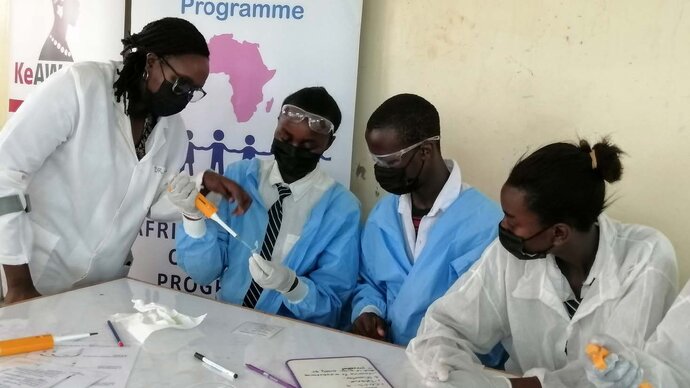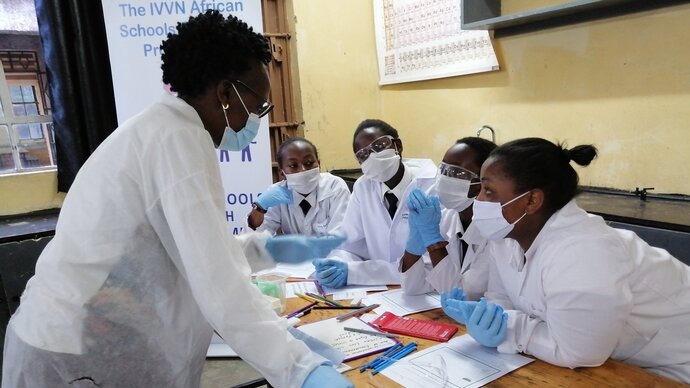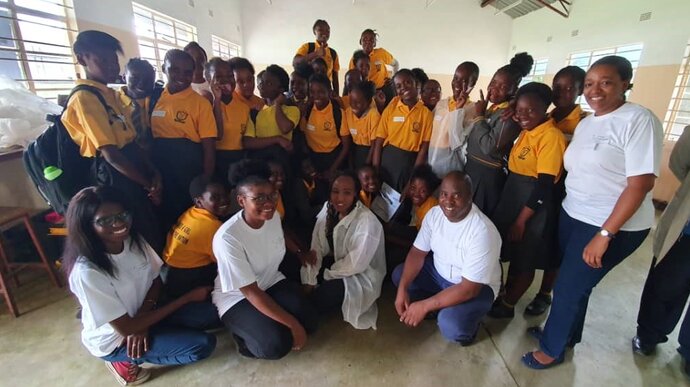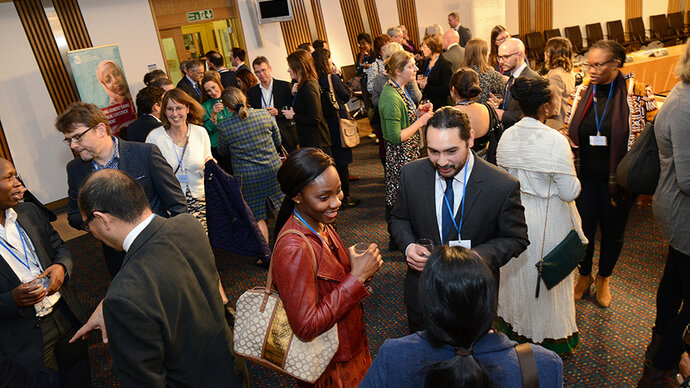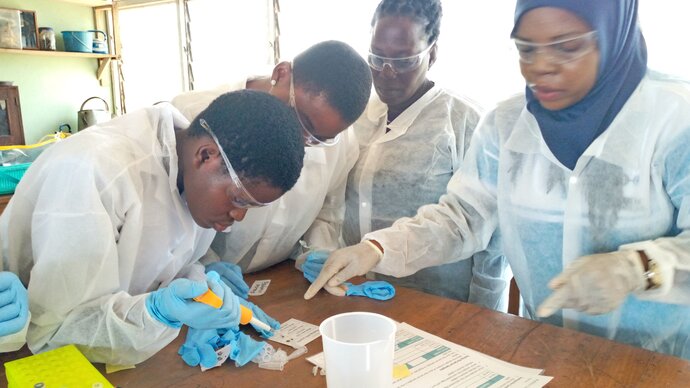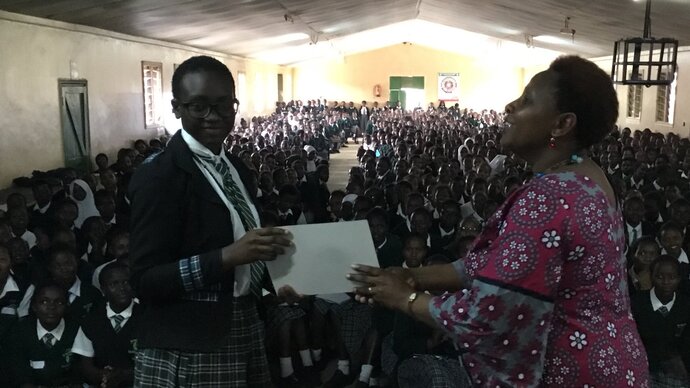IVVN African Schools Outreach Programme: United High School and Isanbi Comprehensive High School
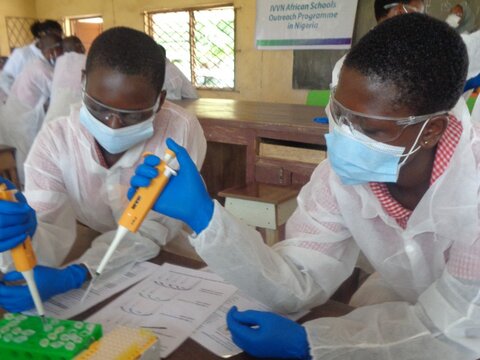
The IVVN African Schools Outreach Programme has equipped a network of women African scientists with the knowledge and tools they require to host interactive workshops in their local schools, with the ultimate goal of inspiring young girls to be the next generation of scientists. Since the programme launched in March 2019, the first phase of the programme has trained 13 scientists and reached more than 200 students across schools in Kenya, Nigeria, Zambia and South Africa. Unfortunately, activities have been disrupted due to Covid-19; however, recently, the programme was resumed in two schools in Ogun State, Nigeria.
Dr Funmilayo Ibitayo Deborah Afolayan from the University of Ibadan, who was of the scientists trained during the first phase of the programme, recruited and trained five researchers from the University of Ibadan on how to communicate with school students as well as how to effectively use all the apparatus and equipment included in the mobile laboratory during the workshop.
Following the training session, the African Schools Outreach Team prepared their mobile laboratory in a suitcase and travelled to Ogun State to visit United High School on 8 June 2021 and Isanbi Comprehensive High School on 9 June 2021 and deliver the outreach activities. 160 students, aged between 10 and 19 years old, took part in the workshops.
During the workshop, students learned about the importance of vaccination and were taught how to use a micropipette. They then performed an experiment to identify the percentage of dogs that had received a Rabies vaccine and interpreted and discussed their results. After the experimental session, the students had the opportunity to ask the six scientists leading the workshop about their careers and what inspired them to become a scientist. Furthermore, scientists from the Nigerian chapter of African Women in Research and Development (NiAWARD) visited Isanbi Comprehensive High School to give the students an insight into a career in science.
My favourite part of the workshop was the rabies vaccination experiment because the scientists taught us that if our dog is not vaccinated they could transmit rabies to humans
I enjoyed observing the colour change in the experiment because the colour change lets us know which dogs have been vaccinated and which have not
Follow the progress of the project on our Twitter account (@IntVetVaccNet) and using the hashtag #InspiringFutureScientists.
